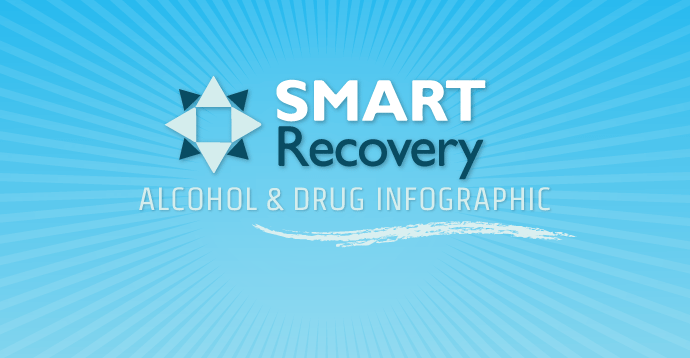The Significance Of Aftercare In Alcohol Rehabilitation Centers

Content author-Bernstein Poe
Are you all set to take the following action towards a healthier and also sober life?
The trip through alcohol rehab centers is an important primary step in overcoming addiction. However, it is essential to bear in mind that the road to recovery does not finish there.
The relevance of aftercare in alcohol rehab facilities can not be overstated. It is the essential to boosting your lasting recuperation and also avoiding relapse.
After completing a rehabilitation program, you may feel a feeling of accomplishment and also newfound strength. Yet without the appropriate support and also support, the challenges of preserving soberness can be overwhelming.
That's where aftercare can be found in. It supplies you with the devices, sources, and also ongoing assistance you require to browse the ups as well as downs of life after rehabilitation. Through a combination of counseling, support system, as well as ongoing therapy, aftercare helps you construct a strong structure for your healing journey.
So, buckle up as well as prepare to discover the significance of aftercare in alcohol rehabilitation facilities, since your journey to lasting sobriety has actually simply begun.
Enhancing Long-Term Recovery
Enhancing long-lasting healing resembles planting seeds in a yard, where aftercare in alcohol rehabilitation centers functions as the nurturing sunshine and also water to assist those seeds grow into strong, resistant plants.
After finishing the preliminary therapy program, aftercare plays a crucial duty in maintaining soberness and stopping regression. It supplies ongoing support, guidance, as well as sources to people as they transition back to their day-to-days live.
One vital facet of aftercare is the implementation of relapse prevention approaches. With specific therapy sessions and also support system, people find out dealing systems as well as devices to take care of triggers as well as cravings. They're furnished with the essential abilities to browse difficult scenarios and also manage stress without considering alcohol.
This ongoing support assists individuals remain devoted to their soberness journey as well as avoid falling back right into old patterns.
In addition, aftercare in alcohol rehab centers supplies a sense of neighborhood as well as link. Participating in regular support system conferences permits people to share their experiences, challenges, as well as successes with others that recognize their struggles. This feeling of belonging as well as support can be unbelievably encouraging and also reassuring. It advises individuals that they're not the only one in their journey and that there are others that have actually encountered similar challenges and also triumphed over them.
Aftercare in alcohol rehabilitation centers is crucial for enhancing lasting healing. It provides the necessary support, devices, and also neighborhood for individuals to preserve their soberness and also avoid relapse. By nurturing people' progression and offering ongoing advice, aftercare makes sure that the seeds of recuperation remain to expand as well as flourish right into a healthy and balanced, meeting life.
Stopping Regression
In order to preserve soberness, it's important for you to actively take part in relapse avoidance methods post-treatment. Avoiding relapse is a recurring process that calls for effort and commitment.
Right here are three crucial techniques to assist you stay on track:
1. Construct https://www.statnews.com/2022/07/12/fda-rule-facilitate-prescription-otc-switches/ : Surround on your own with people who recognize and also sustain your trip in the direction of soberness. This can include your household, friends, as well as support system. Having a network of individuals who are there for you throughout testing times can make a considerable difference in preventing relapse.
2. Develop healthy and balanced coping mechanisms: It is essential to locate healthy ways to manage stress and anxiety, causes, and also desires. This can consist of exercising mindfulness techniques, taking part in routine exercise, or seeking hobbies and passions you appreciate. By discovering positive electrical outlets for your feelings, you can avoid turning to alcohol as a coping device.
3. Develop a regression avoidance strategy: Work with your therapist or counselor to develop a relapse prevention plan tailored to your details requirements as well as sets off. This plan ought to consist of techniques for recognizing indication, handling desires, and also looking for help when needed. By having a strategy in place, you'll be much better outfitted to browse tough circumstances as well as remain on the course to long-term healing.
Keep in mind, protecting against relapse is a continual journey that needs self-awareness, commitment, as well as continuous support. By proactively participating in relapse avoidance methods, you can boost your chances of maintaining soberness and leading a healthy, fulfilling life.
Navigating Challenges of Reintegration
When you rehabilitate into society after finishing therapy, browsing the challenges of reintegration can feel like stepping onto a complicated and strange course. You might have developed brand-new coping mechanisms and also skills throughout your time in rehab, yet using them in the real world can be discouraging.
Among the largest obstacles you might face is managing triggers and temptations that can bring about regression. It is essential to remember that you're not the only one in this journey. Reach out to your support network, whether it's friends, household, or fellow recuperating addicts, who can supply advice as well as understanding during this difficult time. They can aid you determine potential triggers and develop strategies to manage them, such as avoiding particular places or circumstances, discovering healthy and balanced options to deal with stress and anxiety, and also exercising self-care.
One more difficulty of reintegration is reconstructing connections that might have been strained or damaged as a result of your addiction. It's common to really feel a mix of feelings, including shame, pity, and concern, when reconnecting with enjoyed ones. It is necessary to approach these conversations with sincerity, humility, and also a willingness to make amends.
Keep in mind that restoring depend on takes some time and also consistent initiative. Endure on your own and also those around you as you work towards repairing and reinforcing these relationships. Furthermore, consider looking for professional help from specialists or counselors that focus on dependency recuperation and family members therapy. They can give support as well as assistance as you navigate the complexities of reconstructing partnerships and creating much healthier interaction patterns.
Conclusion
Finally, aftercare is an essential element of alcohol rehabilitation facilities, as it plays a crucial duty in enhancing lasting recuperation and protecting against relapse. By giving ongoing support and advice after the first therapy, aftercare programs make certain that individuals have the needed devices to navigate the obstacles of reintegration into society.
Imagine a sailboat starting a trip throughout the huge ocean. The initial rehabilitation treatment functions as the strong wind that pushes the watercraft onward, helping it cruise far from the rainy waters of addiction. However, without proper aftercare, the boat threats shedding its method and also getting captured in the treacherous currents of regression. Aftercare serve as the compass, leading the watercraft in the direction of safe harbors as well as helping it stay on program in the direction of lasting soberness.
Data sustains the effectiveness of aftercare programs in maintaining recovery. Researches have shown that people who join aftercare are most likely to preserve abstaining as well as experience improved general wellness contrasted to those who do not get ongoing support. This data underscores the significance of aftercare in avoiding regression and also advertising long-term recovery.
By offering a continuum of treatment, aftercare programs make sure that individuals have accessibility to support networks, therapy sessions, and also sources that attend to the obstacles they may come across post-rehab.

